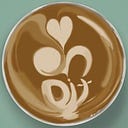Review: La Gaia Scienza, Adelaide Festival
by Kyriaco Nikias
So modest is the fame of the Italian trio La Gaia Scienza that even more remarkable is the polite revolution they incite in musical performance. Its three musicians have for three decades sought to restore life to some of the greatest early music. Last night, their mission was to dust off the layers of late-Romantic kitsch that often conceal the idiom and proportion of Brahms and Schubert.
The likes of the Australian Brandenburg Orchestra have, at least in the eastern states, popularised the performance of Baroque music on period instruments. To bring this approach, as did La Gaia Scienza, to Romantic music, is remarkably rare. But the goal of historically-informed performance is susceptible to the just-as-bad substitution of one musical immovability for another. Seeking to hear music exactly as it was intended to be heard (which is, in reality, impossible) can be a recipe for artificial pretence, for suffocating any creative license under pedantic rigidity.
In spite of this, the music of La Gaia Scienza achieves a balance in which each instrument is respectfully allowed to sing with individual presence. In Brahms’ Piano Trio in B Op. 8 Federica Valli on fortepiano gave us the most beautiful example of this, the keyboard as one element of a greater whole — its sound commanding, but not aggressive. Her instrument, a modern replica of an 1819 Viennese model, projected both Romantic warmth and the Classical clarity of earlier keyboards, something foreign to the great modern concert grand. There is a world of difference between this delicate balance and, on the other hand, the familiar cliché of a heroic Steinway drowning a mere backdrop of other orchestral voices.
Australian audiences know all too well that disproportionate monumentality, which impoverishes music that was not written to be played as, say, the epic concertos of Rachmaninov. Responsible for this is perhaps the Australian aesthetic longing for what Robin Boyd called ‘chintzy old-lavender charm’; the musical equivalent must be that familiar, narrow melodic palette of grace and grandiosity — ‘nice’, but boring, and eventually, artless. Instead, La Gaia Scienza brought measured energy, discordant tension, and brightness. That this trio — whose name is nearly unknown outside Italy — came to perform but one concert in Adelaide is invaluable to Australian music.
